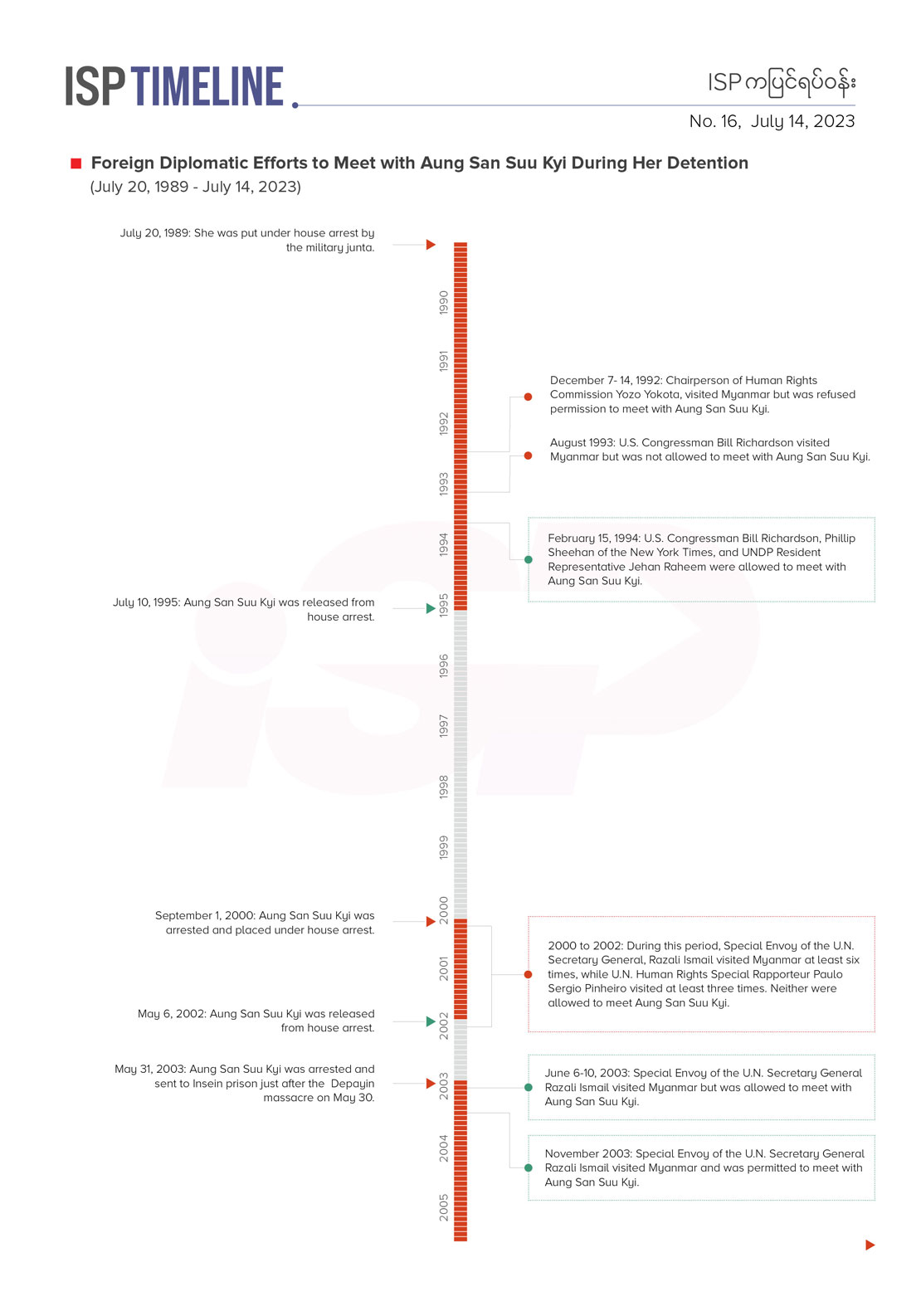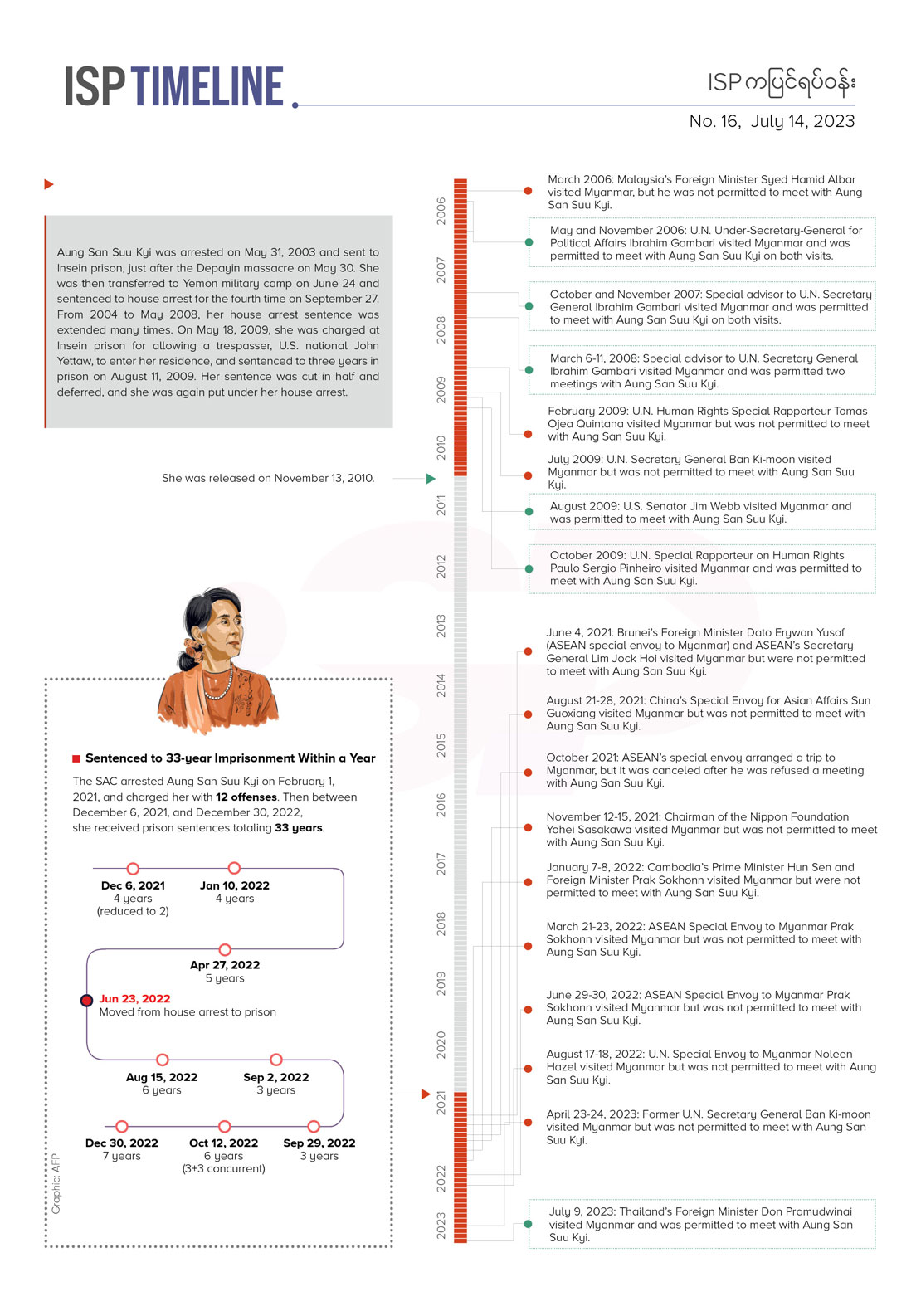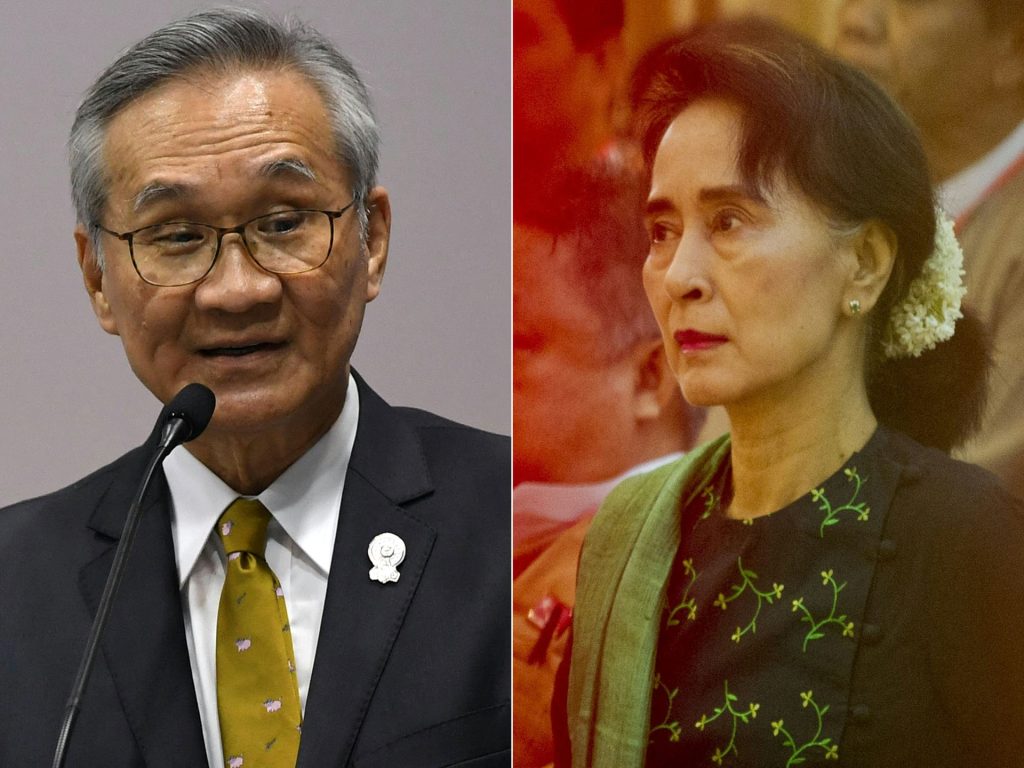On Point No. 16
(This article is a translation of the original Burmese language version that ISP-Myanmar posted on its Facebook page on July 14, 2023.)


∎ Events
Thailand’s Deputy Prime Minister and Foreign Minister, Don Pramudwinai, recently disclosed that he met with Myanmar’s former leader Aung San Suu Kyi in detention in Naypyitaw on July 9, 2023. The meeting came just two days before the ASEAN Foreign Ministers Meeting in Jakarta and was the first allowed in the two years following the military coup in February 2021.
∎ Preliminary analysis
The military’s decision to allow a foreign diplomat to visit Aung San Suu Kyi is in line with the established pattern followed by previous military regimes. Over the past three decades since her initial arrest in 1989, she has been visited in detention by foreign diplomats and envoys from international organizations on at least 12 occasions. However, it is worth noting that these meetings have not led to significant political progress within Myanmar. Similarly, the most recent visit to her is more likely to serve to ease international pressure, foster disagreements among international actors regarding approaches to the Myanmar issue, and further create divisions among internal stakeholders, instead of resulting in significant political advancements for Myanmar’s current crisis.
Thailand’s Deputy Prime Minister and Foreign Minister, Don Pramudwinai, has assumed a crucial role in shaping such a political narrative following his visit, which is supposedly a key element in evading international pressure and deepening political divisions, especially in the aftermath of diplomatic visits to Aung San Suu Kyi. In his remarks reported by the Thai language Matichon Daily on July 12, Mr. Don emphasized the existence of two distinct conflicts in Myanmar: political conflicts and armed conflicts. While armed conflicts have persisted since the country’s independence in 1948, political conflicts emerged in 2021 as a result of the military’s seizure of power due to irreconcilable differences between the military and civilian leaders.
Mr. Don further underscored the need to separate the two types of conflicts to effectively address the political problem. He emphasized that the current political conflicts primarily involve military and civilian leaders, with other factors being considered secondary. Mr. Don emphasized that trust is the most critical condition and something which ASEAN should strive for. This political narrative might hold potential interest for some ASEAN countries frustrated by the current prolonged crisis in Myanmar. China and India might also be intrigued by this political narrative put forth by Mr. Don.
On the other hand, following the recent coup, particularly since Indonesia assumed the ASEAN chairmanship, there is a widely acknowledged notion that addressing the underlying causes contributing to Myanmar’s nation-building failure should be the top priority. Therefore, it seems that Mr. Don’s proposed conflict resolution approach of civil-military relations needs to be complemented with efforts to tackle the root causes to lead Myanmar to the escape from the vicious cycle of political turmoil. ISP-Myanmar also recognizes the utmost importance of emphasizing inclusiveness, ethnic equality, and justice in resolving Myanmar’s crisis by actively considering the perspectives of Ethnic Armed Organizations (EAO) and ethnic political parties.
ISP-Myanmar previously discussed Aung San Suu Kyi’s political role (see ISP OnPoint No.1), emphasizing that her influence could not be removed by oppression or imprisonment. While she remains a significant actor in the political landscape, the current conditions on the ground no longer support a resolution centered solely around Aung San Suu Kyi due to widespread grievances and a rise in radicalization. In the past, Aung San Suu Kyi cleverly dodged the junta’s manipulations over visiting foreign envoys. However, the asymmetry of power was always such that these meetings could not produce any political breakthroughs.
∎ Scenario forecast
The SAC expects that leveraging Aung San Suu Kyi may allow it to outmaneuver regional initiatives pushed by ASEAN, and to create further political divisions among internal and international actors. Within Myanmar, it will be interesting to see how opposition groups such as the National Unity Government (NUG), the National League for Democracy (NLD), and the Committee Representing People’s Hluttaw (CRPH) send out the message to the people and navigate alliances with EAOs. Aung San Suu Kyi might be allowed more meetings with international delegates in the near future, or she might be back to her house arrest or regain her freedom soon, the possibilities remain unknown.

